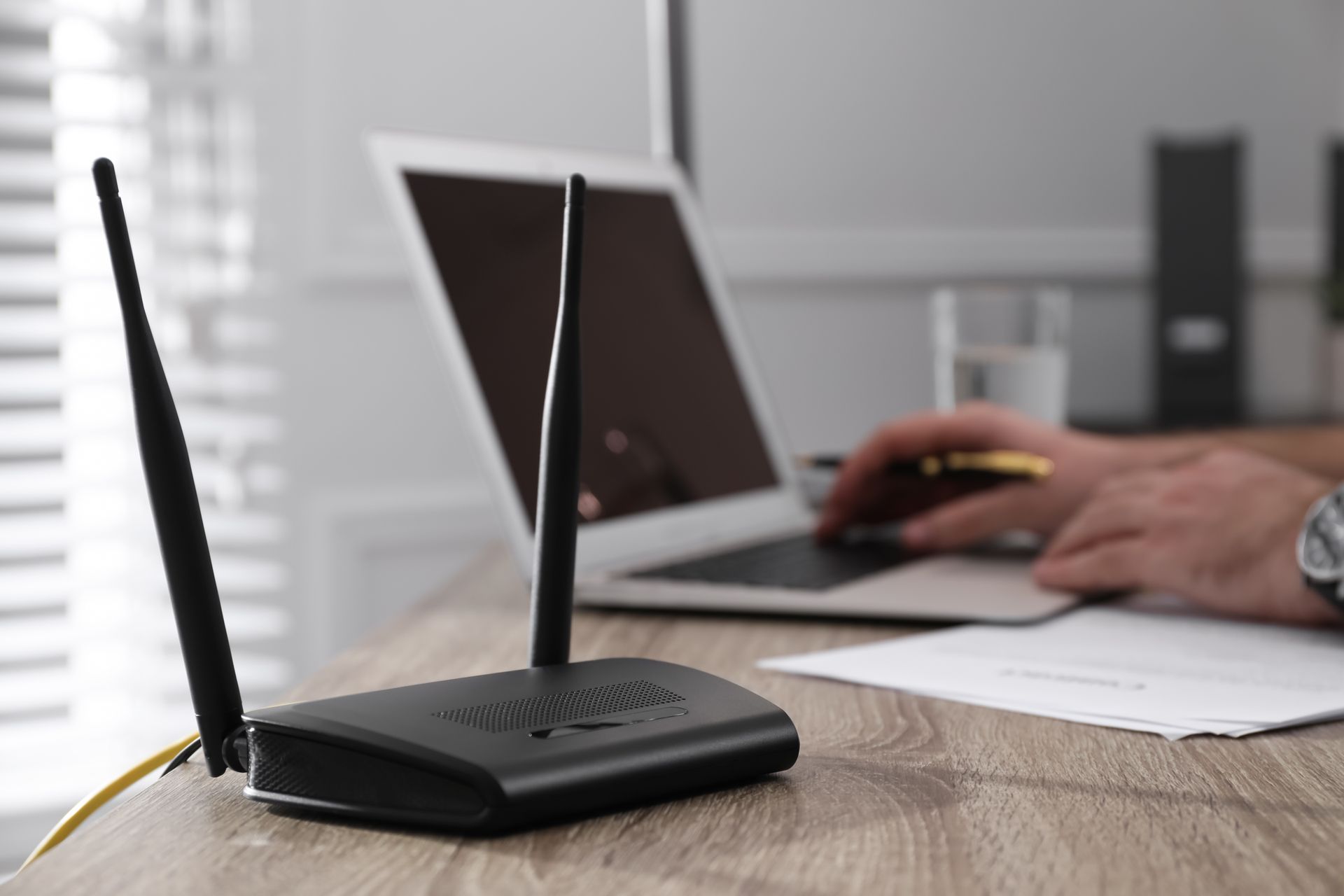Latest News and Articles












Our Products and services
Phone

Enhance your business communication with our comprehensive range of phone systems. Whether you need traditional landlines, VoIP, or hosted telephony, we provide solutions tailored to your needs.
Empower your workforce with the latest mobile phones from leading manufacturers. We provide competitive deals on a wide selection of devices, ensuring your team stays connected on the go.

Mobile Phones

SIM Only
Simplify your mobile communication with our SIM-only deals. Perfect for businesses that already have devices but need reliable and cost-effective mobile service.
Stay connected with our reliable and high-speed broadband services. We offer a variety of packages to suit businesses of all sizes, ensuring you have the bandwidth you need for seamless online operations.
Broadband

IT Solutions

Transform your business with our cutting-edge IT solutions. From network setup to cybersecurity, we provide comprehensive services to keep your IT infrastructure robust and secure.
Enhance your payment processing with our state-of-the-art PDQ machines. We offer a variety of terminals to suit different business environments, ensuring fast, secure, and reliable transactions.

PDQ Machines

Energy
Reduce your energy costs and carbon footprint with our sustainable energy solutions. We help businesses switch to greener, more efficient energy sources.
Boost productivity and collaboration with Microsoft 365. We offer seamless integration and support for this powerful suite of tools, helping your team work smarter and more efficiently.
Microsoft 365

Contact Us
We’re happy to answer any of your questions and help guide you through the process of upgrading your communications
Our Commitment to You:
Personalised Support: You’re never just a number to us. We take the time to understand your specific needs and provide customised solutions that align with your business goals.
Expert Guidance: Our team of professionals is always available to offer expert advice and support, ensuring you make informed decisions about your communication infrastructure.
Seamless Integration: We offer seamless integration of our telecom services with your existing systems, minimising disruptions and ensuring a smooth transition.
Proactive Improvement: We continuously work to improve your communication solutions, identifying opportunities to enhance performance and save you money.
Sustainable Practices:
Join the UK’s first completely green telecommunications company. We help you reduce your environmental footprint with eco-friendly communication solutions.
Ongoing Support: Our commitment doesn’t end with installation. We provide ongoing support to ensure your communication systems operate flawlessly.
Request a Consultation
Simply fill in the form below and one of our telecoms experts will contact you to discuss your requirement.
Footer Quick Quote
Thanks for the quick quote information!
Please try again later.
Alternatively give us a call today on
01903 952733 or email us directly sales@crecommunications.co.uk
Request a Consultation
Simply fill in the form below and one of our experienced engineers will contact you to discuss your requirement.
Footer Quick Quote
Thanks for the quick quote information!
Please try again later.
Alternatively give us a call today on
01903 952733 or email us directly sales@crecommunications.co.uk
Our Commitment to You:
Personalised Support: You’re never just a number to us. We take the time to understand your specific needs and provide customised solutions that align with your business goals.
Expert Guidance: Our team of professionals is always available to offer expert advice and support, ensuring you make informed decisions about your communication infrastructure.
Seamless Integration: We offer seamless integration of our telecom services with your existing systems, minimising disruptions and ensuring a smooth transition.
Proactive Improvement: We continuously work to improve your communication solutions, identifying opportunities to enhance performance and save you money.
Sustainable Practices: Join the UK’s first completely green telecommunications company. We help you reduce your environmental footprint with eco-friendly communication solutions.v
Ongoing Support: Our commitment doesn’t end with installation. We provide ongoing support to ensure your communication systems operate flawlessly.
What Happens Next?
1.
We’ll Give You a Call:
Once you make an enquiry, our team will reach out to you promptly to discuss your needs and answer any initial questions you may have. We aim to understand your business challenges and objectives to provide the most relevant information and advice.
2.
We’ll Arrange a Discovery Meeting:
We believe in the power of firsthand experience. We’ll schedule a demonstration of our telecom solutions, allowing you to see their benefits in action. During the discovery meeting, we’ll dive deeper into your specific requirements, assess your current setup, and identify opportunities for improvement.
3.
We’ll Prepare a Proposal:
Based on our discussions and assessments, we’ll prepare a comprehensive proposal tailored to your business. This proposal will outline the recommended solutions, detailed cost estimates, and implementation timelines. We’ll ensure you have all the information you need to make an informed decision.

Rated Excellent
based on our Google reviews
Tim has left my business seriously sticky! 10/10
Tim was kind, considerate and took his time whilst exploring many, many options with me. I was left extremely satisfied. CRE Communications says that "Good communication is the glue that holds business together" and Tim has left my business seriously sticky! 10/10
Exceptional experience with CRE Communications!
Their team provided top-notch service, addressing our communication needs promptly and effectively. From start to finish, they were professional, knowledgeable, and friendly. Highly recommend CRE Communications for anyone seeking reliable communication solutions for their business.
Can't really recommend CRE Communications enough.
Can't really recommend CRE Communications enough. With the utility issues I was receiving from our previous supplier, CRE swooped in and used their excellent customer service to get me set up fast and efficiently, lowering costs too. Big thanks to Ryan, Calvin and Elliot for their work.
CRE are A breath of fresh air in their field!
Outstanding customer service and level of care. Ryan from their team has been phenomenal and assisted with every single concern we have presented them with. They've been amazing with the upgrade of our phone systems with easy and understanding training from their team. Would highly recommend!

Compare our solutions now
Compare Our Solutions Now: What’s Best for You?
Navigating the world of telecommunications can be overwhelming, but at CRE Communications, we're here to make it simple. Our tailored solutions are designed to meet the unique needs of your business, whether you're looking for mobile deals, phone systems, or hosted telephony. By comparing our range of services, you can find the perfect fit that not only enhances your communication but also saves you time and money.
Start exploring our solutions now and discover what’s best for you. With CRE Communications, you’re never just a number – we’re committed to building relationships and providing best-in-class service tailored to your needs. Let us help you bring your communications to life, with eco-friendly practices and a focus on sustainability that benefits both your business and the planet.
CRE Communications
16 Lloyds Court
Crawley West Sussex
RH10 9QX
Quick Links
Newsletter
Sign up to our newsletter and receive the latest updates and industry commentary
Newsletter
We will get back to you as soon as possible.
Please try again later.
All Rights Reserved | CRE Communications
